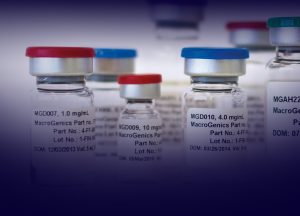Gilead Sciences is continuing to follow through with its recent lean into the oncology space. The research-based biopharmaceutical company is set to pay a $60 million upfront fee to license a bispecific antibody from monoclonal antibody developer MacroGenics (MG). MGD024, which was recently bumped up in MG’s pipeline after its profile surpassed that of previous phase-2 frontrunner flotetuzumab, is a prospective treatment for CD123-positive blood cancers including myelodysplastic syndromes (MDS) and myeloid leukemia (AML). It is meant to reduce an often life-threatening toxicity known as cytokine-release syndrome (CRS) by bringing heightened antitumor activity and an extended half-life that afford less frequent dosing. Bill Grossman, Gilead’s Senior Vice President of Oncology Clinical Development, said that MGD024 “could translate to more patient-friendly dosing and enhanced clinical outcomes for people living with AML and MDS.”
In addition to the eight-figure upfront payment, an extra $1.7 billion is on the table for MG if the candidate eventually hits the market for a preset handful of indications. Also in the cards are tiered royalties on all sales activity. The inflow of cash will be of great help to MG amid its business restructuring campaign, which has so far seen the closure of two facilities, a 15% reduction in employees, and an overall culling of its R&D programs. The new deal additionally grants Gilead an option on a pair of undisclosed bispecifics that have germinated from MacroGenics’ DART bispecific discovery platform, like MGD024 did.























